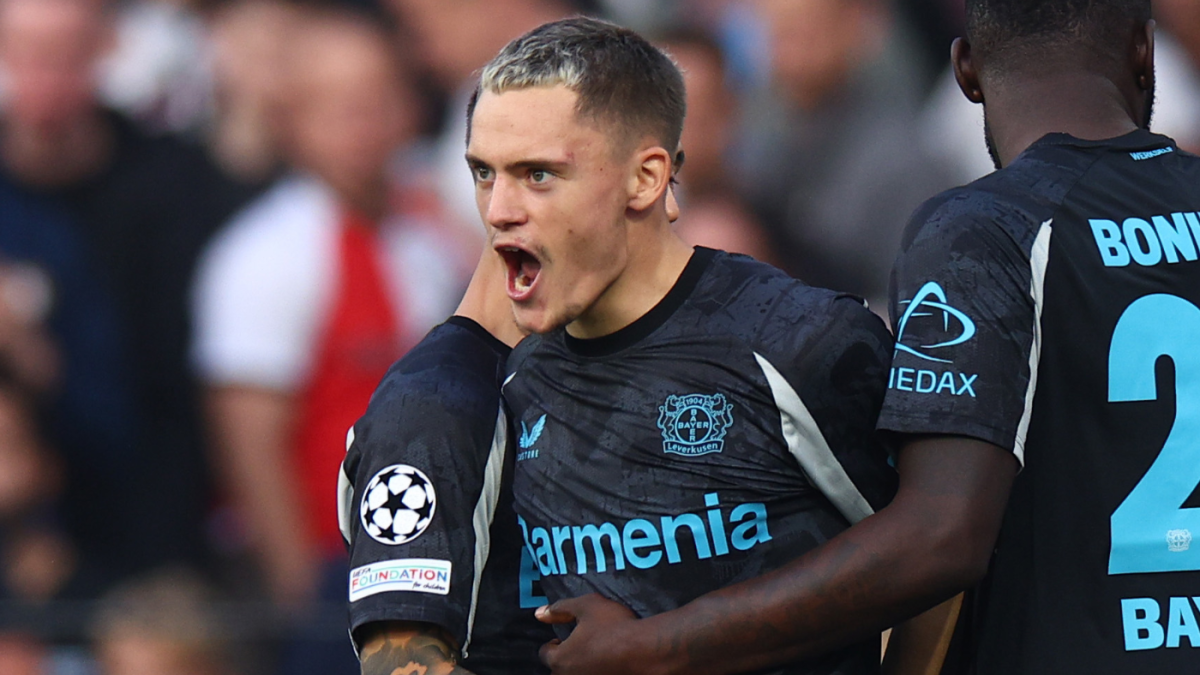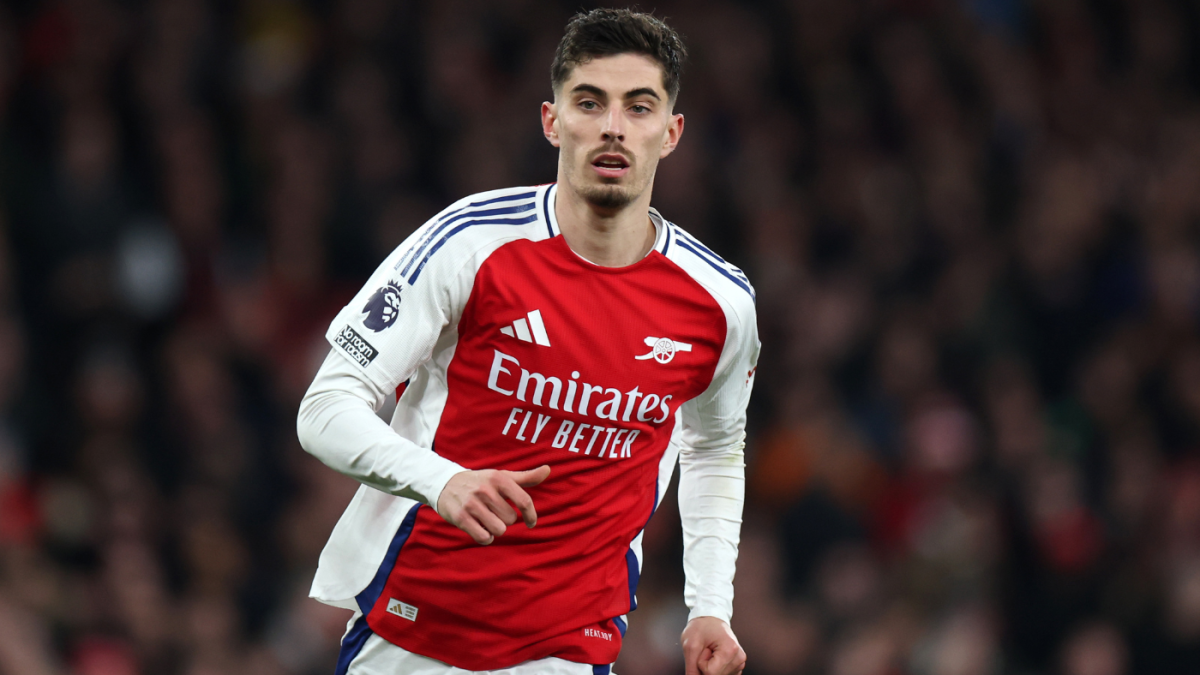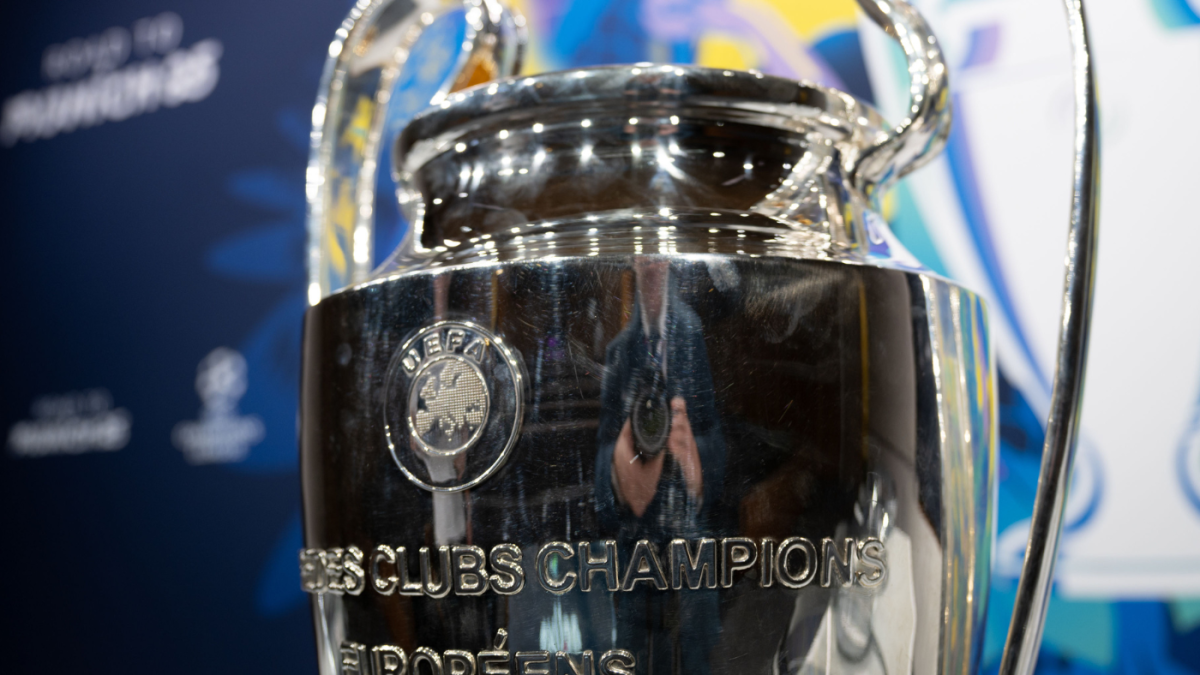 Champions League
Champions League

 Conference League
Conference League

 Premier League
Premier League

Published on Sep, 30 2024

Week two of the Champions League is already upon us, the league phase serving up a boatload of intriguing matches included Bayer Leverkusen's clash with Milan, Paris Saint-Germain's trip to Arsenal and a re-run of the 1982 European Cup Final as Aston Villa host Bayern Munich. Here's what we're keeping an eye out for:
If a case is to be made that the encouraging early season defensive signals from Bayern Munich are to be believed, it might just be based on how effectively they locked up Florian Wirtz. With Joshua Kimmich at his most industrious and two or three bodies to aid him, the Bavarians were able to hold Bayer Leverkusen's star man to just three successful offensive duels from 13, one touch in the box and no shots.
Even then, they couldn't stop entirely stop Wirtz, who ended with the assist that ensured the defending champions keep in touch with the leading pack at the top of the Bundesliga. It may not have been the most elegant pass the 21-year-old has played -- and boy does he play a lot of them that are easy on the eye -- but even this micro assist for Robert Andrich spoke to Wirtz's remarkable qualities, one touch of his chest enough to position an awkwardly bouncing ball such that he could immediately roll it sideways for his teammate to take a shot before Bayern's defense could scramble out. Another game, another direct contribution to the scoresheet. That rather typifies Wirtz this season.
Through eight games in all competitions, Wirtz has seven goal contributions. Notably for a player who has long looked like one of Europe's best providers, six of those have been goals. Early in the season this may be, but given the explosive start that the face of Leverkusen made to his Champions League debut -- two goals in his first 36 minutes -- you could be forgiven for thinking this might be Wirtz's supernova season. This really might be the sort where the word young stops being applied alongside the descriptors of high talent: the best playmaker in Germany, Europe's top attacking talent.
The reason you can make that statement with such confidence is that Wirtz's fine form in front of goal dates back a fair bit further than his scoring streak so far this season. In the two and a half campaigns prior to the start of 2024, the youngster averaged about 1.6 shots per 90 Bundesliga minutes, a number that particularly dipped as he worked his way back from a major ACL injury. Since the start of 2024 that number has skyrocketed to just in excess of three. Victor Boniface's lengthy absence demanded that someone in Leverkusen colors step up. Wirtz did just that, delivering so many of the big goals in the slog to the end of an undefeated domestic campaign.
Naturally, Boniface's return means the shot output has eased up, but only a fraction while all the way through the creative numbers have held up at Wirtz's customarily remarkable level. Given that his post-shot xG is so much higher than his pre-shot xG and his goal return even higher than either, it is fair to question whether some regression is due. There is also something a little curious about a shot profile that seems to either be high value close range opportunities or hopeful efforts from range. However, when a player of this quality hits form, it can run and run and run. Milan might just regret running into Wirtz at this moment in time.
Another week of Premier League action, another clutch goal from a corner to carry Arsenal to a big result. Their 13 shots off dead balls against Leicester City on Saturday -- a number which doesn't include the own goal Leandro Trossard forced on Wilfried Ndidi off a 95th minute Bukayo Saka corner -- was the joint-most they have managed in a league game since the appointment of set piece coach Nicolas Jover in the summer of 2021. In that time only two teams, Brentford and Newcastle, have bettered that tally in one game.
Since the start of last season the Gunners rank at or near the summit of the English top flight in just about every dead ball metric. They score more, create more xG, give up fewer opportunities to their opponents (their expected assists allowed from set pieces is particularly remarkable) and hit their targets with remarkable accuracy. When they're packing their box with behemoths, it is often a matter of when, not if, they find the net.
Curiously, that has not at all translated to the Champions League, where 11 games in the competition are yet to bring a set piece goal for the Gunners. The shots and xG dip too, from four and 0.4 in the Premier League last season to 2.5 and 0.2 in their continental matches. Some of that drop in output is down to lower inputs, Arsenal certainly didn't pick up quite the gaudy number of corners on their travels but even that was offset by a few more free kicks from the sort of positions where Martin Odegaard, Declan Rice and Saka can ask questions of defenders.
More than volume or even execution, Arsenal's problems with dead balls in Europe seems to be one of discipline. In last season's Champions League, the Gunners led the way both in terms of number of fouls committed in the opposition penalty area (15) and per game average (1.5). Only three forwards -- Kylian Mbappe, Victor Osimhen and Jude Bellingham -- gave away more free kicks in that part of the pitch than center back Gabriel. Jover's array of picks, screens and blockers works to devastating effect in the Premier League. When it really works, as in their second goal against Manchester City eight days ago, it drives opponents to apoplexy. Gabriel Martinelli stands his ground in front of Ederson and the goalkeeper both bemoans a red shirt blocking his route, and knows he will simply be told he should have attacked the cross more. In English football you can always want it more.
The same rules are not quite applying when the continent's best officials take charge. Take this instance as Arsenal chase an equaliser against Bayern Munich in last season's quarterfinals. Gabriel drifts back from an offside position and into what begins as a robust embrace with Eric Dier and ends as a six man ruck. Many a Premier League referee would view this as six of one, half a dozen of the other. Instead Arsenal lose a prime chance in the dying minutes of a big game.
Similar had happened in the previous round against Porto. Mischief maker in chief Ben White collides with Pepe, the Goya of the 'dark arts'and what looks to be a fairly straightforward bump between the two ends with... well, I've never used the spotlight function while mocking up images before, but this seems appropriate.
Paris Saint-Germain might not have anyone who sells contact to the very back row like Pepe did, but, given their relative lack of muscle, they will be acutely aware that the best way to stop Arsenal's threat from corners and free kicks is to turn those instances into free kicks of their own. In due course, a coach of Jover's quality will probably puzzle out a way to stay within the continental interpretation of the rules and get chances for his big guys. So far, however, he does not quite seem to be there.
Here's a quick conditional one to end this week's predictions off. It is, at least, a scenario that makes sense. Suppose that, urged on by a home support all the more ebullient given the memories of the 1982 European Cup final, Aston Villa burst out of the blocks in their first meeting with Bayern Munich since that unforgettable night in Rotterdam. Suppose that one of Ollie Watkins or Morgan Rogers, the latter in the form of his fledgling career, gets the night going with a bang, an early goal. What happens then?
Logic would suggest that Villa should keep going, push for at least the second. Why not even a third? Certainly there would be nothing more risky than sitting back on a lead against the likes of Jamal Musiala, Michael Olise and, fitness permitting, Harry Kane. And yet, there is that thing that Unai Emery teams do. Too often their one goal leads are not building blocks but shaky foundations, his side intent on clinging on to precarious advantages.
At Ipswich Town on Sunday, Rogers and Watkins turned an early deficit into a 2-1lead within 32 minutes. For the 40 minutes that followed, Villa took zero shots. None. Against a team that before this weekend past was giving up 14 of them per game. Liam Delap struck again for Ipswich and Villa discovered that allowing half a game to pass them by was not an optimal plan for getting three points.
This would be fine if it were a fluke. It is not. Already this season Villa, who have traded quite effectively in thrilling comebacks, have proven themselves a bit too willing to gamble on their defense in the latter stages of a win over Everton and a 2-1 win over Leicester where half of their 10 shots came on their way to Amadou Onana's 28th minute opener. Last season, two goals up against Chelsea after 42 minutes, they registered only one shot before Conor Gallagher equalised in the 81st minute. Go further back into Emery's CV and you stumble upon the horrifying sight of watching Shkodran Mustafi anchor an Arsenal defense two goals up. It rarely ended well. This, ultimately, might just be life under Emery. It doesn't have to be that way. It is though.
Editors Top Picks







